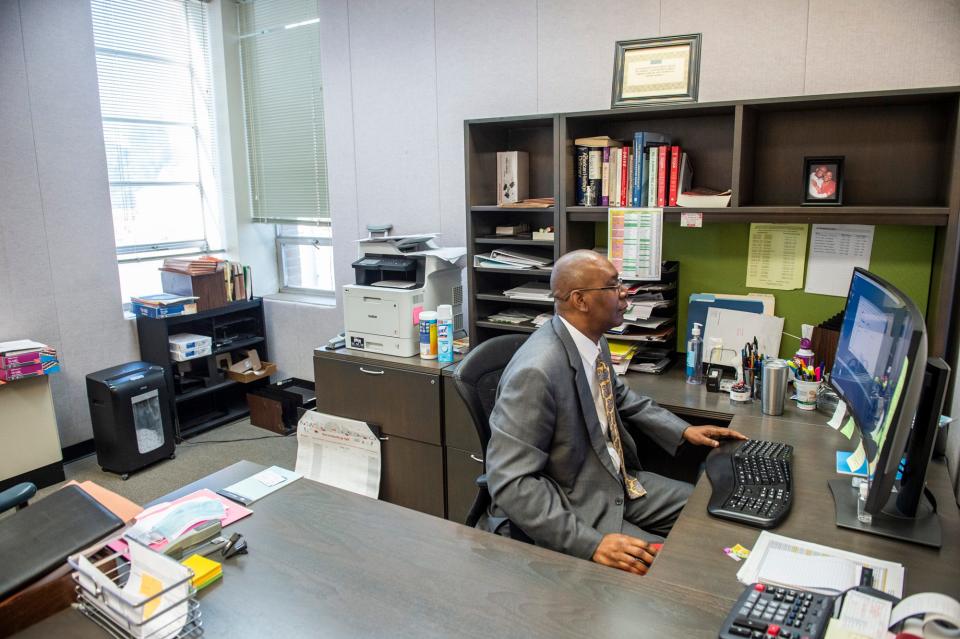Montgomery schools gird for possible recession, enrollment shifts
Montgomery Public Schools could find their budget in trouble if the country enters a recession, warned MPS Chief Schools Financial Officer Arthur Watts.
The school district's proposed fiscal year 2023 operating budget relies on state funding for over 70% of the total budget. That makes it especially reliant on the economy, Watts explained at the Tuesday evening budget hearing.
The proposed budget includes a projected ending fund balance of about $77 million, which is more than three times the amount required. The state requires the district to have a month of expenditures in the fund balance, one of the results of the district being under state intervention for nearly five years. (MPS, which had a history of financial management issues, was released from state oversight late last year.)
The budget also includes funding for deferred building maintenance, which has increased over the years and led to the current Capital Improvement Plan.
MPS would put money in a "capital replacement fund," allowing the district to pay for building maintenance before a structure falls into more serious disrepair. School Board President, Clare Weil, pointed out that most large companies operate with a similar fund.
"Just to highlight the urgency of doing that, knowing that we've had significant numbers of years of deferred maintenance, we don't want to be in that position ever again," MPS Superintendent Melvin Brown said.

So, what if a recession happens?
As district leaders mulled the possibility of a recession, Arica Watkins-Smith of district 7 raised concerns for specific populations of kids that sometimes struggle academically, such as special-education students.
Watts said any budget squeeze would affect classrooms last.
MPS is at greater risk than other districts for effects of a recession because of the high proportion of its budget that comes from state funding. Only around 26% of the MPS FY2023 budget comes from local funding sources, compared to the 45% and 44% portions that Birmingham and Huntsville, respectively, drew from local sources, in fiscal year 2022.
Birmingham and Huntsville are also major shopping centers and could see their local portion increase further if sales taxes increase, Watts said.
What about teacher salaries?
The budget also reflects changes in teacher pay, which may distort the view of some parts of the budget.
This year, the legislature approved historic raises for teachers. Depending on experience, some teachers could see raises of 20%.
Overall, Watts said, the district lost several million in state dollars as a result of student enrollment decreases, but the budget reflects a loss of only $775,577 dollars.
As it did in fiscal year 2022, MPS is projected to get about $150 million from the state in fiscal year 2023. The 2023 number includes the the state-mandated raises, even though the overall amount has not gone up.
Related:Take a look at the new MPS superintendent's 100-day plan
What's next?
Anyone with questions can email Watts at budgetquestions@mps.k12.al.us or attend the next budget hearing at G.W. Carver High School on Sept. 13 at 4:30 p.m.
The full budget hearing presentation can be found here.
Jemma Stephenson is the children and education reporter for the Montgomery Advertiser. She can be reached at jstephenson@gannett.com or 334-261-1569.
This article originally appeared on Montgomery Advertiser: Montgomery schools prepare for possible recession, enrollment shifts

